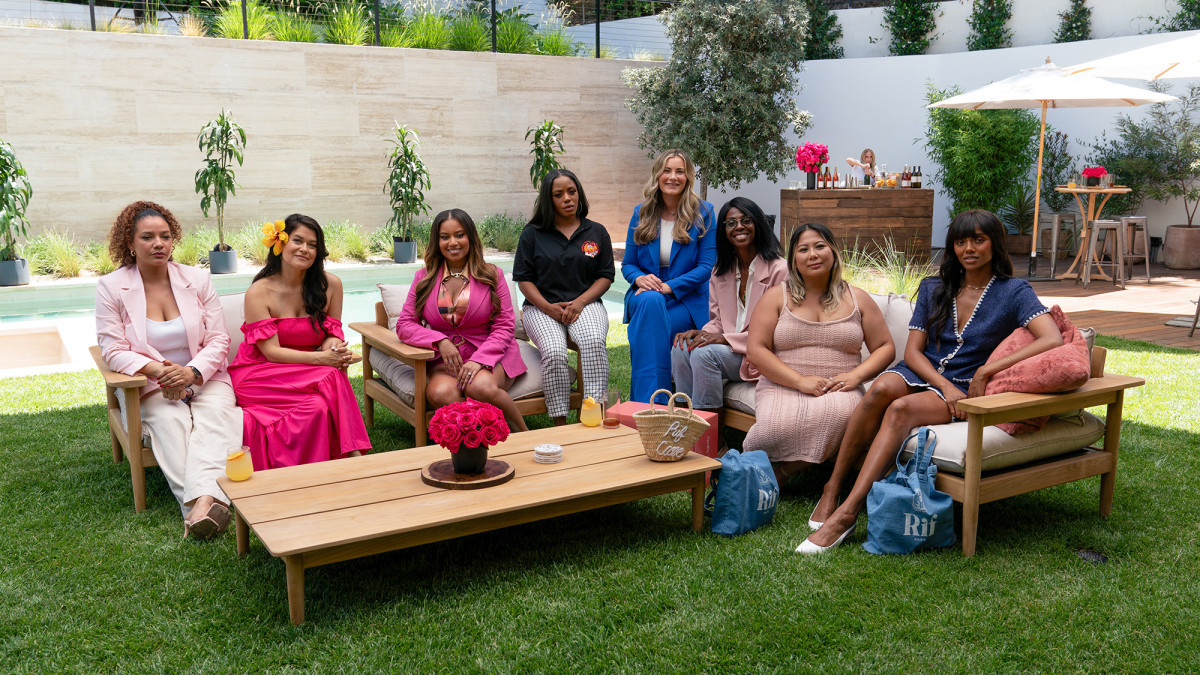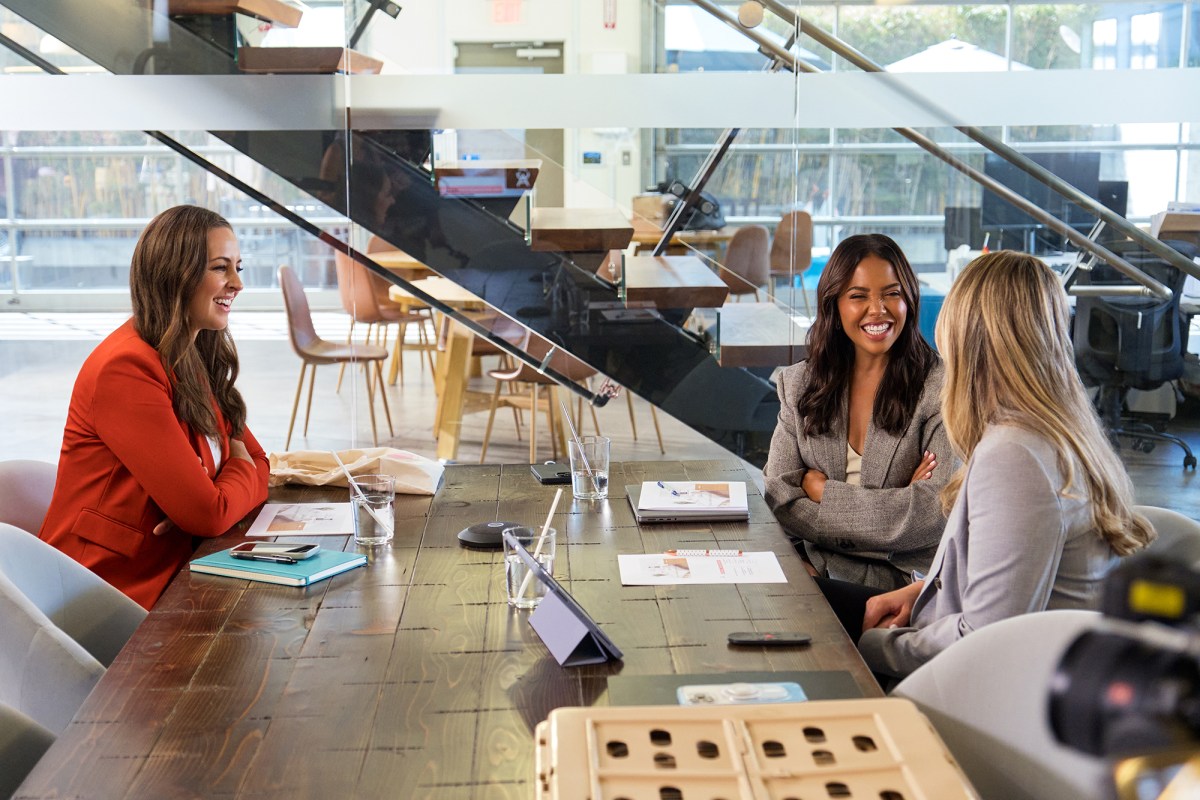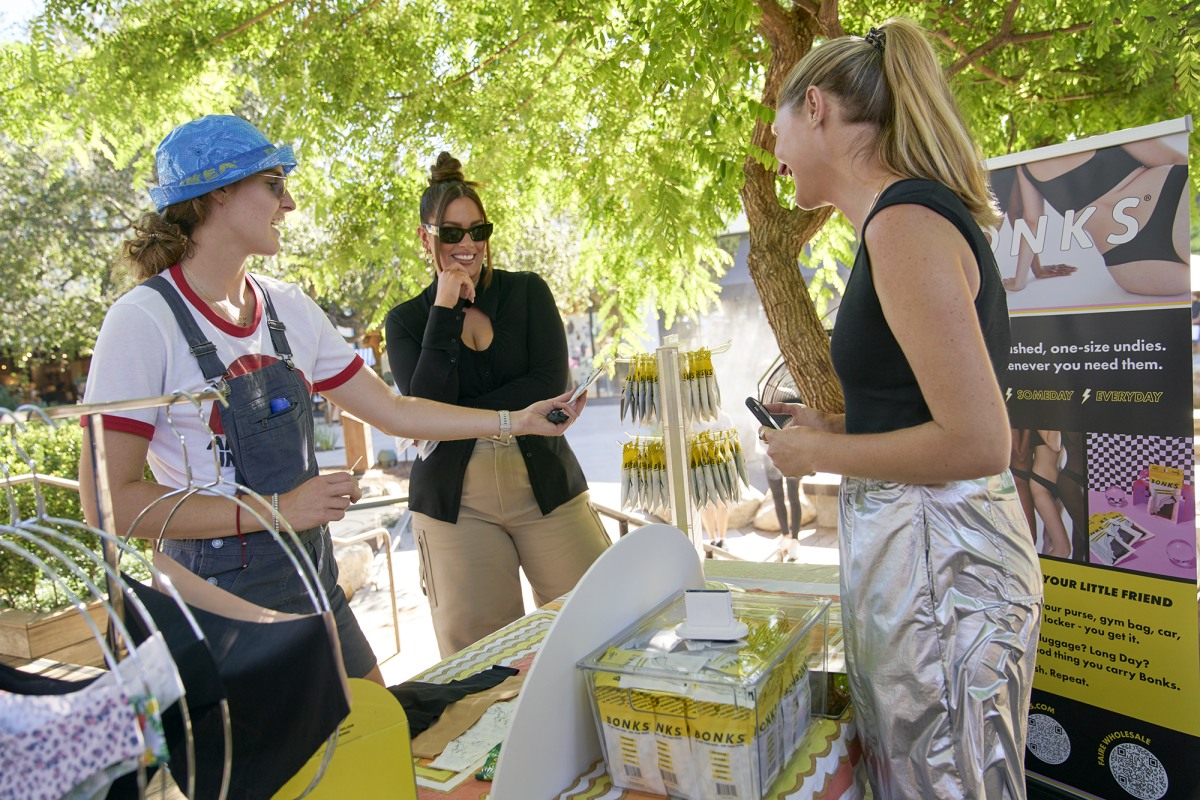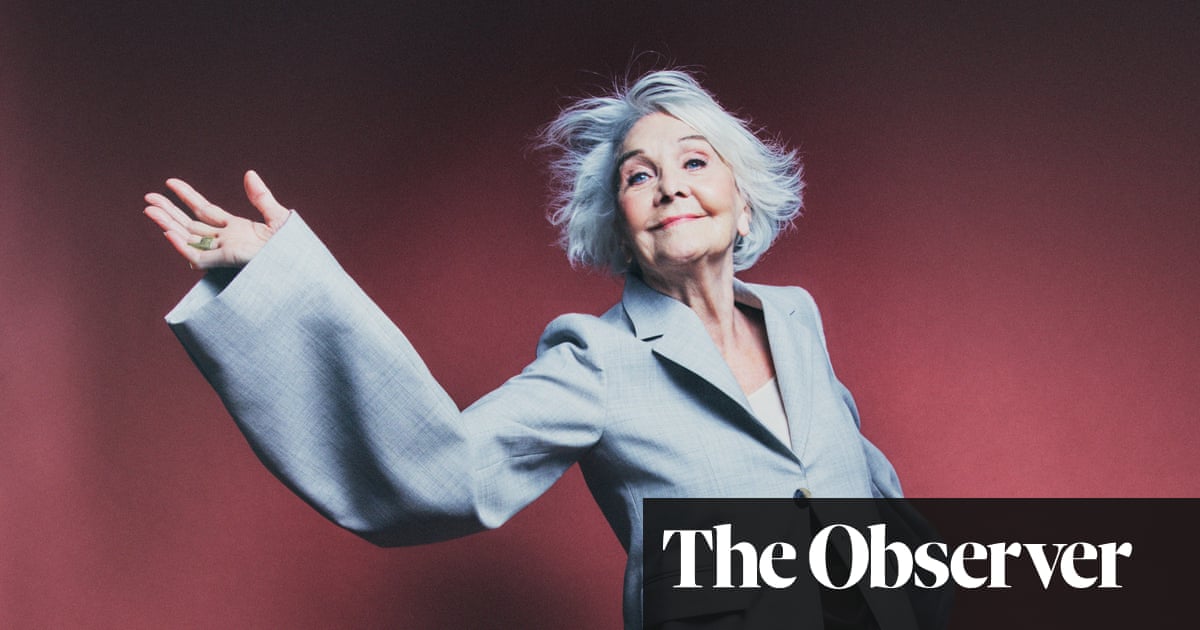Emma Grede is haunted by a certain statistic—that women-owned businesses receive less than 2% of the total funding venture capitalists invest in any given year. It’s not something she’s willing to just accept, though.
“Women investing in other women is an imperative,” says the CEO of Good American, the denim company she cofounded with Khloe Kardashian. “So, I see it as my responsibility, as someone who’s been fortunate enough to be successful, to actually stop complaining about that statistic and start doing something about it.”
[Photo: Roku]
The latest chapter in Grede’s ongoing quest to boost women in business involves her new TV show, Side Hustlers, cohosted by supermodel and fellow entrepreneur Ashley Graham. The reality series, which debuted on the Roku Channel this month and has already been renewed for a second season, depicts a group of female business owners vying not only for a major cash investment from Graham or Grede, but their mentorship as well. In the process, Side Hustlers subtly reveals how both investments and mentorship might be equally crucial to turning a side hustle into a main hustle—and that they’re often equally hard to come by.
Both hosts have the lived experience of seeing how that 2% statistic plays out for female entrepreneurs in real time. Grede recalls being laughed at when she first had the chance to ask an investor for money, and Graham has encountered similar resistance—even after launching a successful lingerie business and investing in many other businesses.
“I still have a hard time getting people to take me seriously because I’m ‘just a model’ or I’m ‘too pretty to understand’ how to run and scale a business,” she says. “And I think it’s part of the same issue that every woman faces, no matter who she is.”

[Photo: Roku]
Side Hustlers, on the other hand, demonstrates what happens when female entrepreneurs have a more level playing field; when the people sitting across from them during a pitch can see a business rooted in solving a problem for women and better understand its true potential as an opportunity. Produced by Reese Witherspoon’s women-focused media company, Hello Sunshine, in a partnership with Ally Financial, the series owes a debt to predecessors like Shark Tank and The Apprentice, but is entirely its own beast.
The show begins with a speed dating-style round of pitches to help determine which founders move on to the next level. Those who make it receive $15,000 to cover expenses as they prepare for a climactic final pitch, seeking a large investment from Graham or Grede. Viewers see the hosts size up each budding entrepreneur—their strengths, flaws, and personalities—and guide them toward an optimal mode of operation. Along the way, the show portrays the exhausting reality of scaling a side hustle while working a day job and having a family.
In other words, it never shies away from the kind of zonked-out-in-front-of-a-laptop moments that grindset culture tends to keep off Instagram.
“People talk about how hard it is to start a business, but they don’t really realize it until you’re in the nitty gritty of it and you’re having to make sacrifices left and right,” Graham says. “When we were in every meeting with these women, though, there was always kind of a metaphorical mirror where they would look at themselves and say, ‘I can do it. I might have to give up a couple things, but this is mine, and I worked my ass off for it.’”

[Photo: Roku]
All of the businesses on the show are different, but as the episodes unfold, viewers may notice a lot of commonality in the early issues founders face with their startups. They each hit roadblocks with marketing, product design, and logistics, and it turns out that rebranding a tangy hot sauce can be just as challenging as adding new sizes and styles to a line of prewashed emergency underwear.
The hosts also help these founders unlearn the common misconception that, in order to launch a successful business, one need already be amazing at everything.
“Being a great entrepreneur is just knowing how to figure stuff out,” Grede says. “Like, I don’t know everything about logistics and, my god, I ship a lot of packages every day.”
For Graham and Grede, the key to figuring things out in business is mentorship—but perhaps not in the traditional way it’s often defined. In the show, they don’t just get under the hood of these businesses and give advice; they’re also generous with opening up their rarified Rolodexes and sharing contacts. By making various introductions, they demonstrate that there is always a partner somewhere who can help find the unlock.
Of course, most women trying to accelerate their side hustles don’t have an Ashley Graham or an Emma Grede to turn to for such assistance. But then again, neither did Graham or Grede when they were first getting started.

[Photo: Roku]
“I don’t think I had a mentor,” Grede says. “What I had was a bunch of clients who I semi-turned into my mentors. I think you use whoever’s at your disposal. If you know someone who has a business similar to yours, you have to go and leverage those conversations. When I was first starting Good American, I would call other CEOs of denim companies and be like, ‘I’m having this problem in my factory,’ and they would chat with me for 30 minutes. People love chatting about themselves and love to lend a helping hand. You just have to get out of your own way and ask the question.”
According to the Side Hustlers hosts, mentorship doesn’t necessarily mean having a mentor to turn to for every obstacle and occasion. Instead, it can just mean cultivating a stable of contacts to reach out to for specific advice. Why ask someone to be your mentor, when you can just ask them a question?
“Talk to people about what you’re building,” Graham adds. “Because you never know who might be able to solve a problem or become your business partner or an investor. It’s all about those connections.”
Several of the women on Side Hustlers leverage the hosts’ contacts, implement their advice, and step their game up exponentially. It won’t spoil the series to reveal that, by the final episode of this season, one of the businesses ends up in such a strong position, its founder(s) are able to reject Graham’s initial offer of a $100k investment for a percentage of equity.
No one was more surprised than Graham herself, who felt some bittersweet pride in that moment.
“Normally, someone wouldn’t say no to that much cash, especially considering the expertise I have in the category,” she says. “But they took what they already had and applied what I gave them, and I was glad that I got to do a little counteroffer.”
It’s an ideal demonstration of how, with the right mentorship, the problem for women-owned businesses might evolve from whether they will ever receive more than 2% of total VC funding to whether they should accept the first offer when that funding inevitably arrives.







